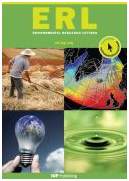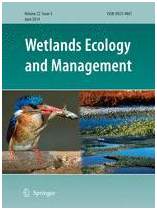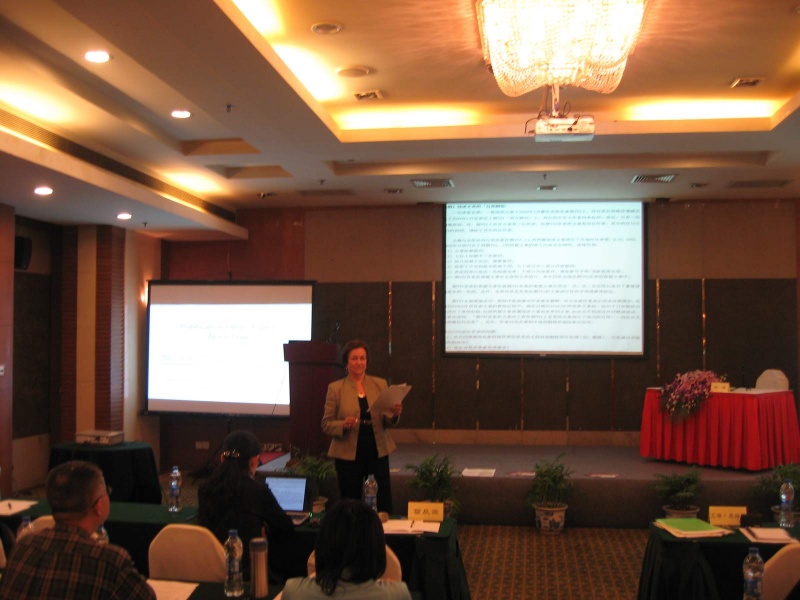The COPE Case Taxonomy is launched!
One of COPE’s most valuable member benefits is the opportunity to present problem publication ethics cases to the quarterly Forum for discussion and advice. The archive of these more than 500 cases represents an extensive searchable resource that editors (and others, as access is free) can consult to help them deal with a whole range of ethical issues.
In 2013, it became apparent that the cases being brought to COPE for help were becoming more complex. A new and more comprehensive classification scheme was therefore developed to make it easier to code cases, to aid searching and to provide a finer level of detail for analysis. The resulting COPE Case Taxonomy comprises 18 main classification categories, and 100 keywords, and was designed to be descriptive not judgemental.
All the cases in COPE’s database were recoded and all new cases are being coded according to the new taxonomy; up to two classifications, denoting the main topics discussed, and 10 keywords can be assigned per case. It is important to note that classification and keyword coding denotes that a topic was raised and discussed, not that a particular form of publication misconduct had occurred.
As others have expressed interest in using the taxonomy, COPE is making it available, with appropriate attribution, for use by other organizations and individuals. We welcome feedback on the taxonomy, including examples of use by others. The full list can be seen here.
FORUM DISCUSSION TOPIC: Fair play for “researchers”: can editors and regulators develop a common approach to the need (or lack of need) for ethical review?
The topic for discussion at this Forum is ‘Fair play for “researchers”: can editors and regulators develop a common approach to the need (or lack of need) for ethical review?’ There are a number of legitimate and valuable tools for gaining information and evidence for scientific advance and improving health care. These include research, evaluation, audit, and others. There is a real danger that UK “researchers” using tools other than “research”, duly following guidance in UK research regulation stating a lack of need for ethical review, find that journal editors will not consider their manuscript for publication because editors dispute the definition of what needs or does not need ethical review
Further details can be found on the COPE website and also via a link from the homepage.
We urge you to read the details of the discussion and then leave your comments.
COPE/CSE joint session held at the 2014 CSE annual meeting 4 May 2014
Report from COPE council member Charon Pierson
Continuing a tradition of collaboration between COPE and the Council of Science Editors (CSE), a panel presentation “Misconduct investigations—balancing collaboration and confidentiality” generated enthusiastic comments on the COPE discussion document “Sharing of information among editors-in-chief regarding possible misconduct”. The panel consisted of Dr Charon Pierson, COPE Council, Dr Steven Shafer, Editor-in-Chief, Anesthesia and Analgesia and Mr Roy Kaufman, lawyer and managing director of new ventures at the Copyright Clearance Center. The audience was a dynamic part of the discussion, with editors sharing their previous experiences and lessons learned.
Specifically, the legal implications of sharing information about submitted manuscripts was a hotly debated point. According to the COPE document, COPE recognizes that there is an inherent conflict between pursuing misconduct and maintaining confidentiality when the suspect manuscript is in the peer review process. COPE does recommend “minimizing the harm while maximizing the benefit” and provides several suggestions about how to do that. The legal perspective from Roy Kaufman in this discussion is worth examining. He contended that a lawyer would look at “fact patterns” related to the conduct of all investigations by journals and as long as the process (the fact patterns of the investigation) was the same in every case, journals would be less vulnerable to legal action. Journals must follow policies that demonstrate a consistent and transparent approach to all investigations of misconduct. The take home message was that editors should maintain confidentiality as much as possible, but that duty has to be balanced with an obligation to maintain the integrity of the scientific record.
An overriding concern was that certain types of misconduct that put the public at risk must be pursued aggressively while still adhering to consistent and transparent processes. Some additional suggestions from the panel and ensuing discussion included: (1) add a statement to the author guidelines that the editor can at his or her discretion inform other journals or institutions about suspected misconduct during the peer review process; (2) all suspected misconduct should be investigated thoroughly according to COPE guidelines (ie, be consistent in approach to all investigations to avoid the appearance of being harsher with some situations or individuals); (3) keep accurate records; and (4) involve the legal department of the publisher as early as possible to avoid escalation of comments and actions that could create legal jeopardy.
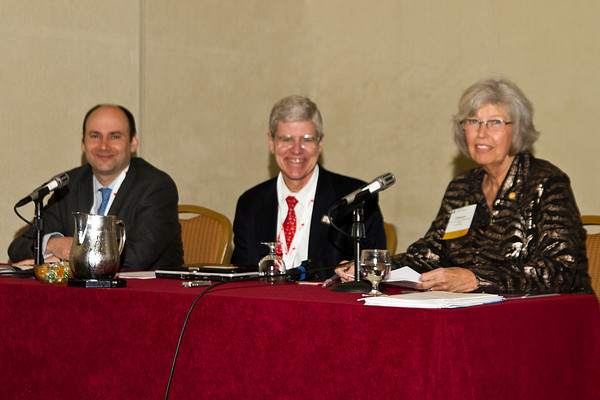
From left to right: Mr Roy Kaufman, Dr Steve Shafer and Dr Charon Pierson at the CSE meeting. Not in the photo was the moderator, Jennifer Mahar.
PAME Congress, Lahore, Pakistan
Report from COPE council member Behrooz Astaneh
The second national congress of the Pakistan Association of Medical Editors (PAME) was held in Lahore, Pakistan, on 26–27 April 2014. More than 200 Pakistani medical editors as well as researchers and faculty members from various Pakistani universities participated in the congress. The congress was inaugurated with speeches by eminent Pakistani researchers, including Dr Maqhbol Jafari, president of the Eastern Mediterranean Association of Medical Editors (EMAME).
I was the co-chair of the second session held in the morning. The afternoon session included three different workshops on journal indexing, medical writing and publication ethics. I co-facilitated the last workshop and talked about the revised version of the authorship criteria released by ICMJE, where I focused on the COPE approach. About 25 Pakistani editors took part in the workshop.
The second day of the congress included two sessions related to medical journalism. In the second session, I presented “COPE, aims and new features”, which was well received. I urged Pakistani editors to consider the COPE guidelines when dealing with ethical publishing, and I also mentioned the benefits of COPE membership. Other presenters also mentioned the COPE guidelines recommended following COPE documents.
The congress finished after the second day. Because of flight restrictions from Shiraz To Lahore, I had to stay a few more days in Pakistan so I would like to thank the organizers, especially Mr Shaukat Jawaid, chief coordinator of the congress, for their warm hospitality during my stay in Lahore.
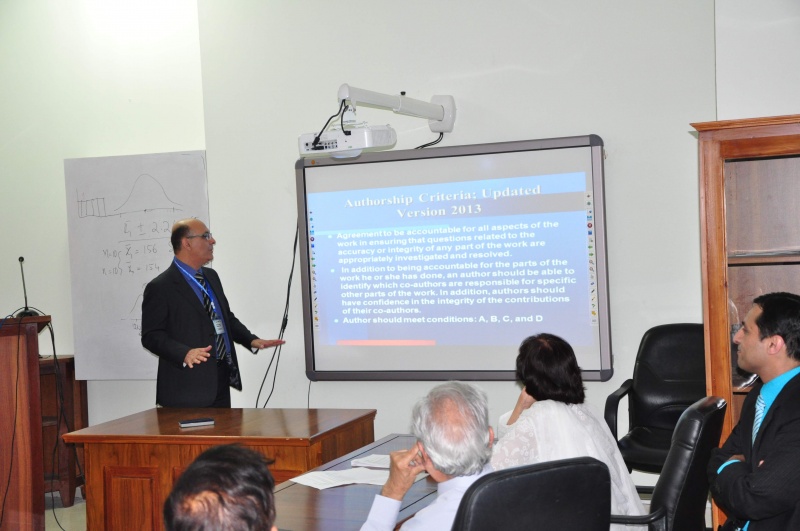
Behrooz Astaneh presenting at the PAME Congress in Lahore, Pakistan
COPE visit to the Proceedings B Editorial Board Meeting
Report from the Royal Society
The annual meeting of the Proceedings of the Royal Society B Editorial Board was held last month at the Royal Society in London. This year we had a special guest in the form of COPE treasurer Chris Graf who hosted a workshop on publication ethics in the digital age for the journal editors. Although time was short, Chris gave an informative and engaging talk about the changing nature of publication ethics now that online content is becoming the norm. This was followed by a lively Q&A session which allowed the editors to discuss tricky publication ethics issues they had come across and get an expert perspective from Chris. The issue of anonymous whistle blowers in particular sparked an interesting debate among the editorial board.
As many attendees previously only had a passing familiarity with the work of COPE, this session provided a great opportunity for them to get to know the excellent advisory services and online resources COPE offers to member journals. The session was invaluable in reminding editors what to look out for where ethical issues are concerned and reassuring us that help is available if required. All in all, the session was a great success and several editors stated how useful it was to have Chris share his expertise with us.
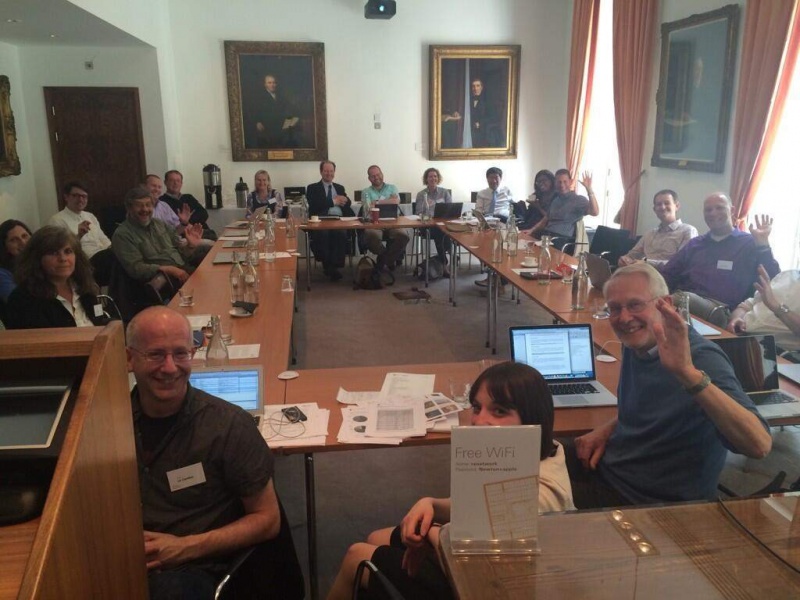
 The monthly round up shows that publication ethics is always in the news for a wide variety of organisations. The American Chemical Society has published ethical guidelines of chemical research, and a new publication ethics organisation has been launched in China. Plagiarism, data fabrication and falsification are ever present. Science Sockpuppets is a new one for me, which I found in the Journal of the Association for Information Science and Technology. Finally, we must not forget that 2014 is the 50th Anniversary of the Science Citation Index, and new words to grapple with have entered the Oxford English Dictionary.
The monthly round up shows that publication ethics is always in the news for a wide variety of organisations. The American Chemical Society has published ethical guidelines of chemical research, and a new publication ethics organisation has been launched in China. Plagiarism, data fabrication and falsification are ever present. Science Sockpuppets is a new one for me, which I found in the Journal of the Association for Information Science and Technology. Finally, we must not forget that 2014 is the 50th Anniversary of the Science Citation Index, and new words to grapple with have entered the Oxford English Dictionary.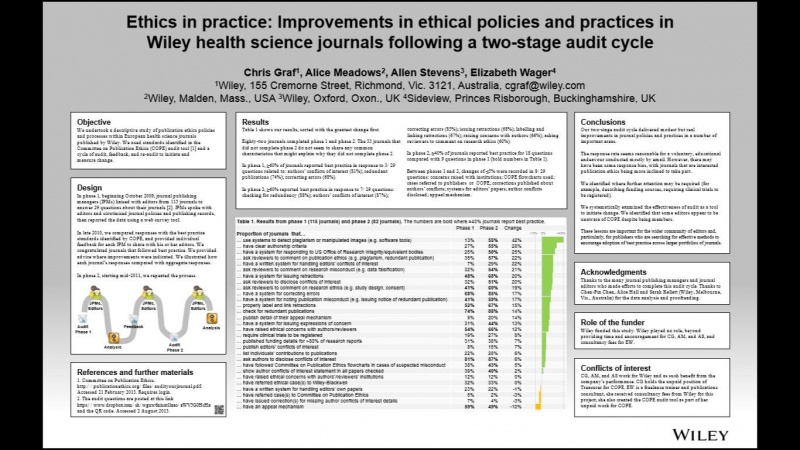
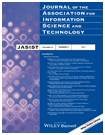 From the
From the 